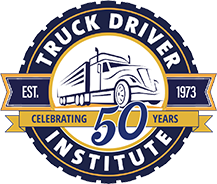Furlough Vs Laid Off: Why Trucking Provides a Stable Career
Wondering what the difference between furlough vs laid off is? In general, a furlough means that an employee temporarily does not work or get paid, while a layoff is a permanent dismissal from a job. A furlough is generally seen as better news than getting laid off, as it usually means the employee continues receiving benefits and will go back to work eventually. However, during these tough economic times, being either furloughed or laid off can mean a constant struggle to pay bills or put food on the table.
If you’re looking for a reliable job that you can depend on even in tough times, you should consider becoming a truck driver. The trucking industry has been and is one of the most stable and well-paying fields around.
Let’s take a closer look at the differences between furlough vs laid off, as well as why choosing a career in truck driving decreases your chances of having either happen to you.

Furlough Vs Laid Off: What’s the Difference?
Knowing the difference between the words furlough vs laid off can be tricky. You probably know that both refer to a person who has stopped working, and not by their own choice. But the terms have very different meanings and consequences for employees.
Furlough
When someone is furloughed from their job, it means that their employer has put them on temporary leave. During this time, the employee does not go to work or receive any portion of their salary. The employee usually still gets to keep receiving benefits, such as health insurance.
Employees are typically furloughed because the business can’t afford its usual payroll expenses. Most often, furloughs happen during recessions. The current pandemic, for instance, has triggered record numbers of employees getting furloughed.
How long do furloughs last? That depends on a number of things, such as why the furlough happened in the first place. A seasonal business, for instance, might furlough its employees on an annual basis during off-season periods. When furloughs are triggered by wider economic downturns, however, it can be harder to predict how long the furlough will last.
Companies who furlough employees often do so out of consideration for those employees’ benefits, but also as a business decision. When the reasons behind the furlough come to an end, rather than having to find and train a whole new team of people, businesses can call back their retained employees and resume normal operations quickly.
Is there a difference between furlough vs laid off when it comes to getting unemployment benefits? That depends. Unemployment is usually handled at the state rather than the federal level, so people in some states might be eligible while others won’t be. During federal emergencies however, such as with the coronavirus, unemployment benefits can be extended to encompass a larger net of people than usual, regardless of the state they live in.
Laid Off
Unlike getting furloughed, an employee who has been laid off is not on a temporary break from their job. Getting laid off signifies a permanent end to someone’s status as an employee. Laid off employees do not continue receiving wages or benefits.
However, it’s important to note that, like a furlough, layoff is usually the word used to describe employees who were dismissed because of external factors. If an employee gets laid off, it is not typically a reflection on their job performance. Employees most often get laid off when, whether due to company-wide struggles or a greater recession, their company cannot afford to keep them on payroll.
Truck Driving Careers Allow You to Worry Less About Furloughs and Layoffs
As we’ve seen, getting furloughed is generally preferable to getting laid off. With that said, when it comes to choosing furlough vs laid off, no one wants either to happen to them. People especially don’t want to be furloughed or laid off during a recession when it’s much more difficult to find a new job and make ends meet.
So what can you do if you get furloughed or laid off from your job, or if you’re worried about having either happen to you? Well, generally not much, as these decisions are not the employees to make.
But there is something you can do: choose a career where you’re less likely to get furloughed or laid off in the first place. With truck driving, your chances of having either happen to you are lower than many other jobs.
Why do we claim that trucking provides a more stable career than many other jobs? Take a look at a few of our reasons below.
1. There Is a National Shortage of Truck Drivers
There has been a shortage of truck drivers in the United States for years. This is partly because the majority of truck drivers are approaching retirement age, and there are not as many younger generations aware of the many career options out there for truckers.
Another reason for the ongoing shortage is the lack of female truckers in the workforce. Although female truck drivers can be just as successful as males, the trucking industry struggles to attract women to the profession.
2. The Pandemic Has Worsened the Trucker Shortage
The shortage of U.S. truckers has been going on for a long time. But the coronavirus has made the truck driver shortage more severe than ever before.
Why has the pandemic had such a hand in worsening the shortage of truck drivers? For starters, DMVs across the country closed down for weeks during the spring. This meant that some truck drivers could not receive or renew their CDLs. Although most DMVs are open again, many are still struggling with their backlogs.
Coronavirus also led to a huge increase in schools nationwide closing or going remote, including truck driving schools. While schools such as TDI remain fully operational, other truck driving schools had to close entirely, seeing as it’s simply not possible to learn truck driving remotely.
3. Jobs for Truckers Are On the Rise
It’s no secret that most industries right now are struggling in the current economy. When it comes to truck driving, however, jobs are actually on the rise.
From April to May, truck driving jobs increased by 2,000. That might seem like a modest increase to some, or just an anomaly. But from May to June, trucking jobs increased by a whopping 8,100.
Why is it that trucking jobs are actually trending up during the current recession? Well, as most of us know, coronavirus has led to more and more people relying on online shopping, grocery deliveries, and other methods that reduce their in-person contact with other people.
So when it comes to the trucking industry specifically, the pandemic has caused an increased demand for faster shipping rates and greater shipping volumes. More relying on postal services means truckers need to be speedier and deliver larger loads than normal.
Furlough Vs Laid Off: You Shouldn’t Have to Choose Either
In these challenging economic times, it can be hard to find a stable job. Many people across the nation are currently getting either furloughed or laid off at unprecedented rates. Although furlough vs laid off mean two different things, the fact is that nobody wants to temporarily or permanently lose their job, especially during a recession.
That’s why we recommend truck driving as a stable career choice. Even during a recession, you’ll have far fewer worries about being furloughed or laid off from your truck driving gig, because truck drivers are in higher demand than ever before. Contact us today to learn more about how TDI can help train you for the stable job in the trucking industry that you deserve.
Get Started
Get your Class A CDL in our friendly, supportive CDL training program. TRAIN with experienced instructors – multiple good-paying, secure job choices with benefits available for eligible graduates. EARN $700 – $1000+ / week to start as a truck driver. Get started today by filling out the form below. We look forward to hearing from you!



